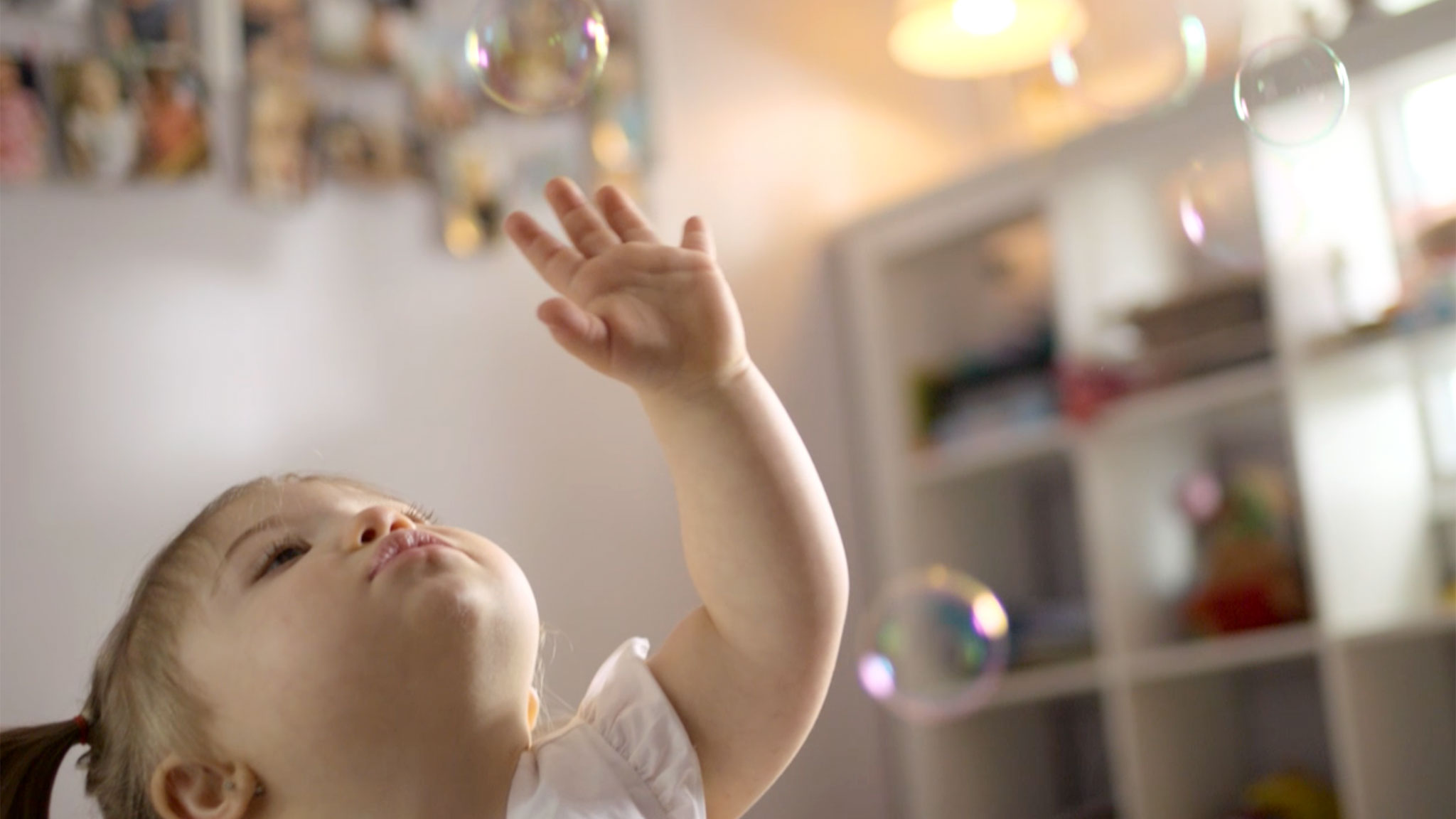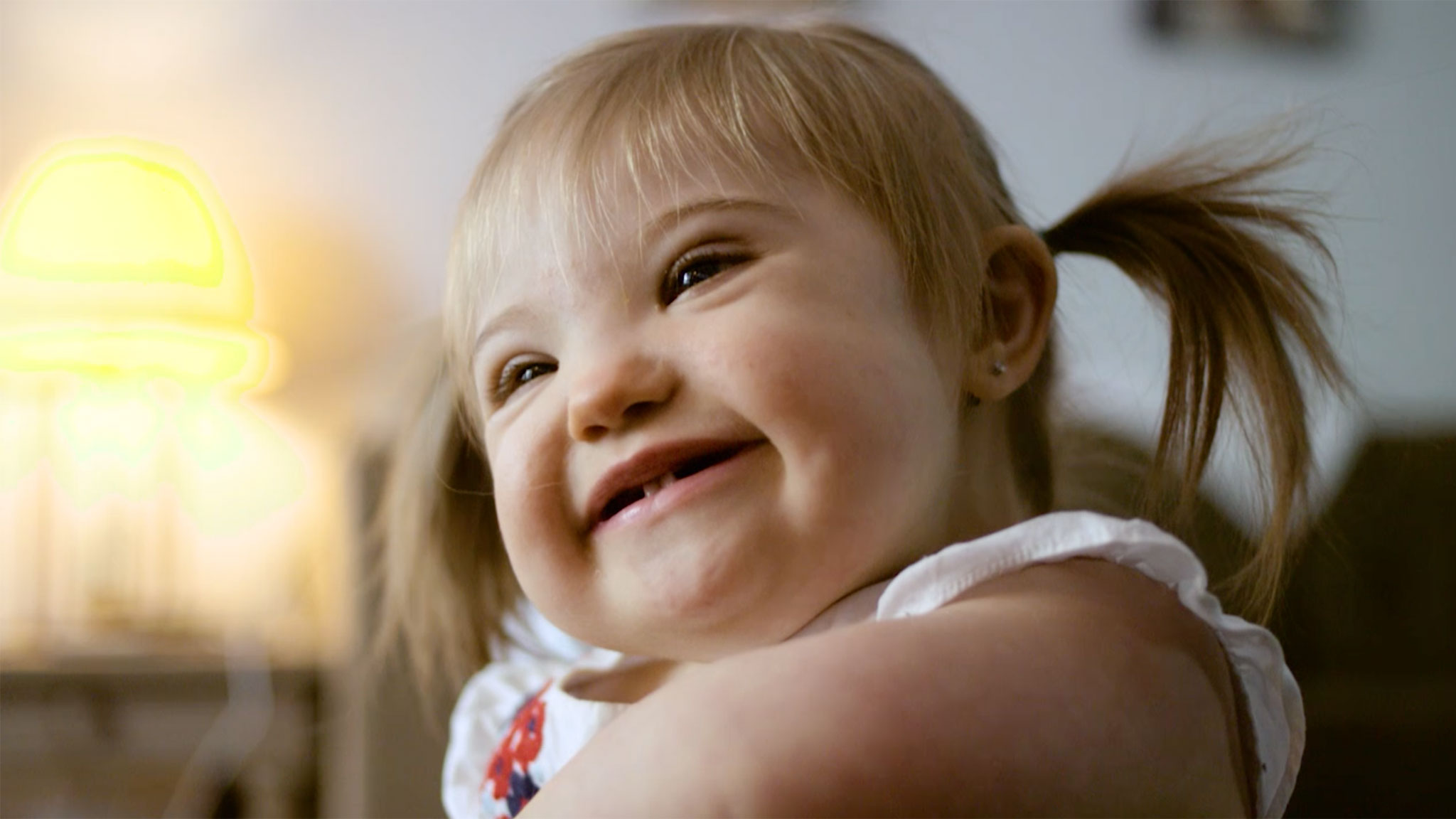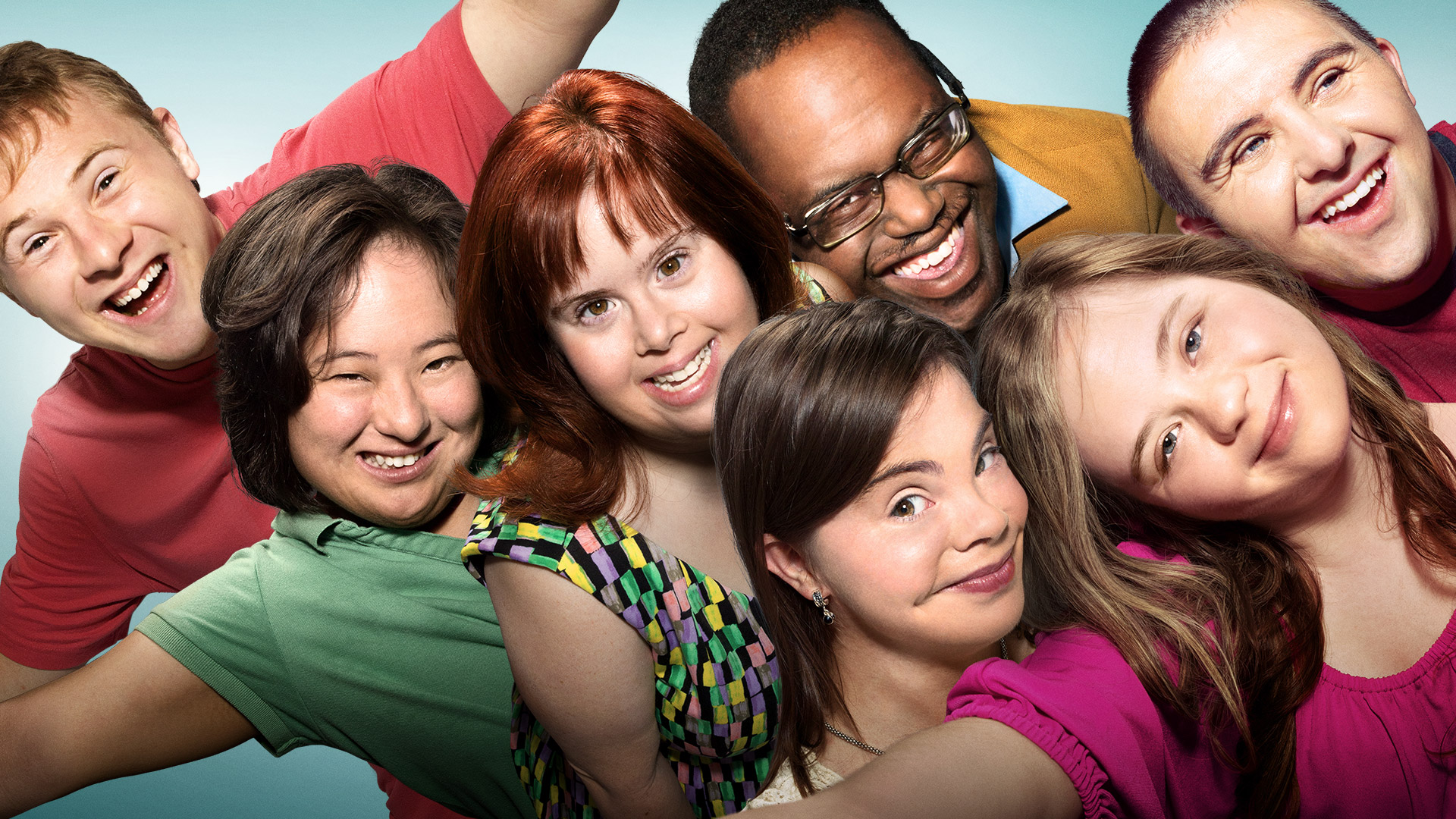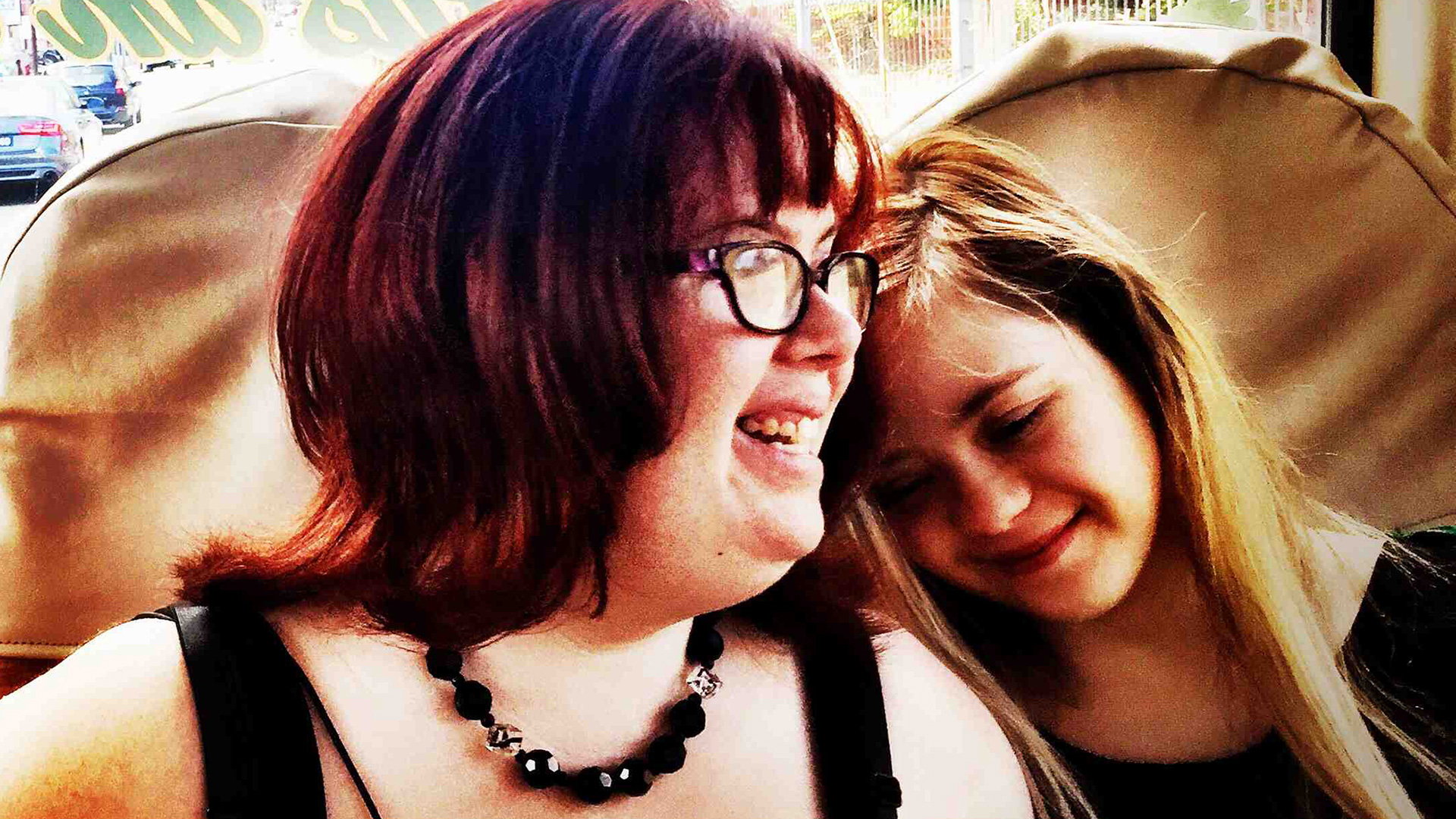Felicity Michelle Biro arrived in this world by emergency C-section 21 months ago. Her Mom describes, "Still lying open on the table when I heard the medical staff muttering, 'She has Down syndrome characteristics'. I was still under so much medication and I couldn't hear too well. They swept her away to the ICU and I fell asleep, exhausted. When I woke up my husband came in crying. Yes, our daughter had Down syndrome. The geneticist came to talk to us, he had a horrible bedside manner. He talked down to me for a while and finished off saying, 'Don't worry, she'll be the pet of the school'."
Life Lessons
Alyse still finds describing the early months of Felicity's life immensely painful, and her voice wavers as she speaks. "For the first two months I was in a complete state of grief. It's not that I didn't love her but when I got pregnant I was like every other mother, thinking, "I've got the next President in here..."
Things have changed nearly two years later, "Oh! Now I am in such a better place. Felicity is more than I ever could have imagined when I was pregnant. So sassy, she has a huge personality. What I have learned is that all the bad moments have been all about me. I've had to let go of preconceived ideas of success. We place so much value on power, beauty, and fame, I knew early on she is not going to fulfill these ridiculous expectations we have for our kids, I see parents around me obsessed by their kids making various milestones earlier and earlier. My child is happy. I lost interest in defining who she was through my own ambitions."
This is something familiar to many parents of children born with developmental disabilities, and it's something that the writer and academic, Andrew Solomon, dedicated 700 powerful pages to in his book, Far From the Tree, about how parents of "different" kids cope. What he commonly sees is a wisdom and depth in these parents of "neurodiverse" children that "neurotypical" parents, he says, would do very well to learn from.

"A lot of parents of different kids start out being terrified but come to ultimately see their previous occupations, such as social status anxiety or materialism, as fatuous. They grow in ways that enrich their lives. Difficulty makes you a deeper person and more understanding of the pain and suffering in the world. Writing Far from the Tree taught me that there is a great deal of intimacy in difficult times with your child. It taught me never to run away, to always stay and fix any problems. It made me a more generous person and a more generous parent."
"All parents have to deal with children that are bewildering to us," he says. Different children have more accepting parents, they understand something. "The lesson is, even if your child is not disabled, they will never turn out the way you wanted, expected or imagined they would; parents who continue to act as if this is not true will run into serious problems. The goal is to love your child for who she or he is."
Steph Nimmo's daughter Daisy was born with serious physical and intellectual disabilities. Nimmo says parenting the youngest of her four children, "Was extreme. I found skills and resilience I did not know I had. We've all got that resilience, but you don't know until you need it. I get sick of people telling me, 'I couldn't be like you' or 'How do you do it?'. What they don't understand is that once you have been through the mourning process for the child you thought you'd have there is a process of growth that is immense. The truth is, I am the person I am because of Daisy. In 2004 I was this ordinary suburban woman, perfectly 'nice' and typically materially minded, and then Daisy came along..."
"One thing you learn when you have a child with a disability is what is important. People were drawn to Daisy; she met Kylie, Johnny Depp, James Cordon... I can't remember them all. What mattered to her? Her buddies, school friends, her family, the dog. She taught me what is important, she shaped me and gave me empathy, emotional intelligence, and kindness. I am a happier person for helping her to live her life."
"I see all these helicopter parents and super mums running about; all these parents and teachers pushing pushing pushing. I'm sure they love their children but I wish they'd just let up for a moment. What is all this rushing for? You? Facebook? Instagram? Your friends? Who, really, are you doing this for. Just let your child be. Let them be free."
Three months ago Daisy died quite suddenly as she battled a sepsis infection. Nimmo had just submitted her book Was This In the Plan?, about losing her husband to cancer. The twin barrels of grief are incomprehensible to most of us. Nimmo has one message: "It doesn't matter what your child is or is not capable of, live in the moment. Enjoy every moment. You don't know what is round the corner."
Alyse Biro says she knew early on, "Felicity is not going to fulfill these ridiculous expectations we have for our kids. That allows her to flourish without the weight of parental expectations. I have lost interest in defining who my daughter is through me. All the bad moments we have, they're all about me benchmarking my child against other children. Once I let go of preconceived ideas of success I feel so free because she's happy. My little girl is happy. She's already successful."
"We live in this world that is built for the standard white male experience. I don't know how it feels to be Afro-American or handicapped or gay, but one thing Felicity has taught me is that we are all connected by our differences. She has given me greater empathy."

Alan Lawrence sounds ashamed as he describes his initial response to his son Wil's birth diagnosis of Down syndrome. But he does not shy away from the truth of what he initially thought back then. "I wanted a perfect family, a kid with special needs would make people stare at me. There were suddenly so many unknowns. It was all me me me. My other kids came in to see him after he was born and they already loved him so much, huddled around going, "Oh he's so cute." My wife, Nikki, was on the phone to a family member going, "Oh you have to see his adorable little nose'." His kids were perplexed. "Dad, why are you crying so hard?"
Now Wil is four, and Lawrence long ago evolved from the damaging "prideful" place he was in after Wil's birth. As a family, "Wil's taught us to slow down and focus on what matters most. There was so much separation before. The connection between the siblings was diluted by all their sports and activities. As a family we've given up on a lot of the dashing around."
He describes the effect on his children, "Wil is teaching our kids so much about accepting difference. It is hard to teach kids compassion, patience, and love. That's something every parent wants their child to be. They are able to see the world through different eyes. We have a new normal, it's not striving for perfection, it's more accepting than that. More free."
Solomon says that the parents of the neurodiverse often become, by default, activists. Each in their unique way, this is certainly true of Nimmo, Lawrence, and of Alyse Biro. Biro describes her fury, even in her post operative haze, as the geneticist told her Felicity would be "class pet". "I don't want my child to be a pet, I want her to be an individual." What infuriates her still, is the way that other children are congratulated for being "good with Felicity". "It's this awful 'helper' and the 'helped' mentality. We need to teach the neurotypical the value of neurodiversity. Felicity is valuable in our community."
"We obsess over perfection more and more in the last century," says Solomon. "There's a problem there because there is often a terrible gap between internal and external truths." For these parents, though, there is an immediate release from this pretense. Speaking to the parents of different kids, certain unequivocally powerful words constantly come up: empowerment, acceptance, freedom, gratitude, openness, resilience, patience, empathy, community and love. What is society's problem with difference then?
Today the man who once feared his Down syndrome fifth child would disrupt his "perfect family" says that, "the many positives outweigh the negatives." He started writing his popular ThatDadBlog within days of Wil's birth, "Because I am excited to see what he's gonna do with his life. It is celebrating Wil. I want people to know him." His adorable and witty Wil Can Fly photos of his son apparently flying in numerous locations have gone viral worldwide. They have, as Lawrence always intended, opened up a conversation. Just recently a couple contacted him to say the blog has inspired them to adopt a Down syndrome girl from Colombia. And you know what the greatest irony is? Since they gave up on and rejected narrow ideas of perfection, the Lawrence family's life in Paradise, Utah just looks even more perfect.

